Search Results
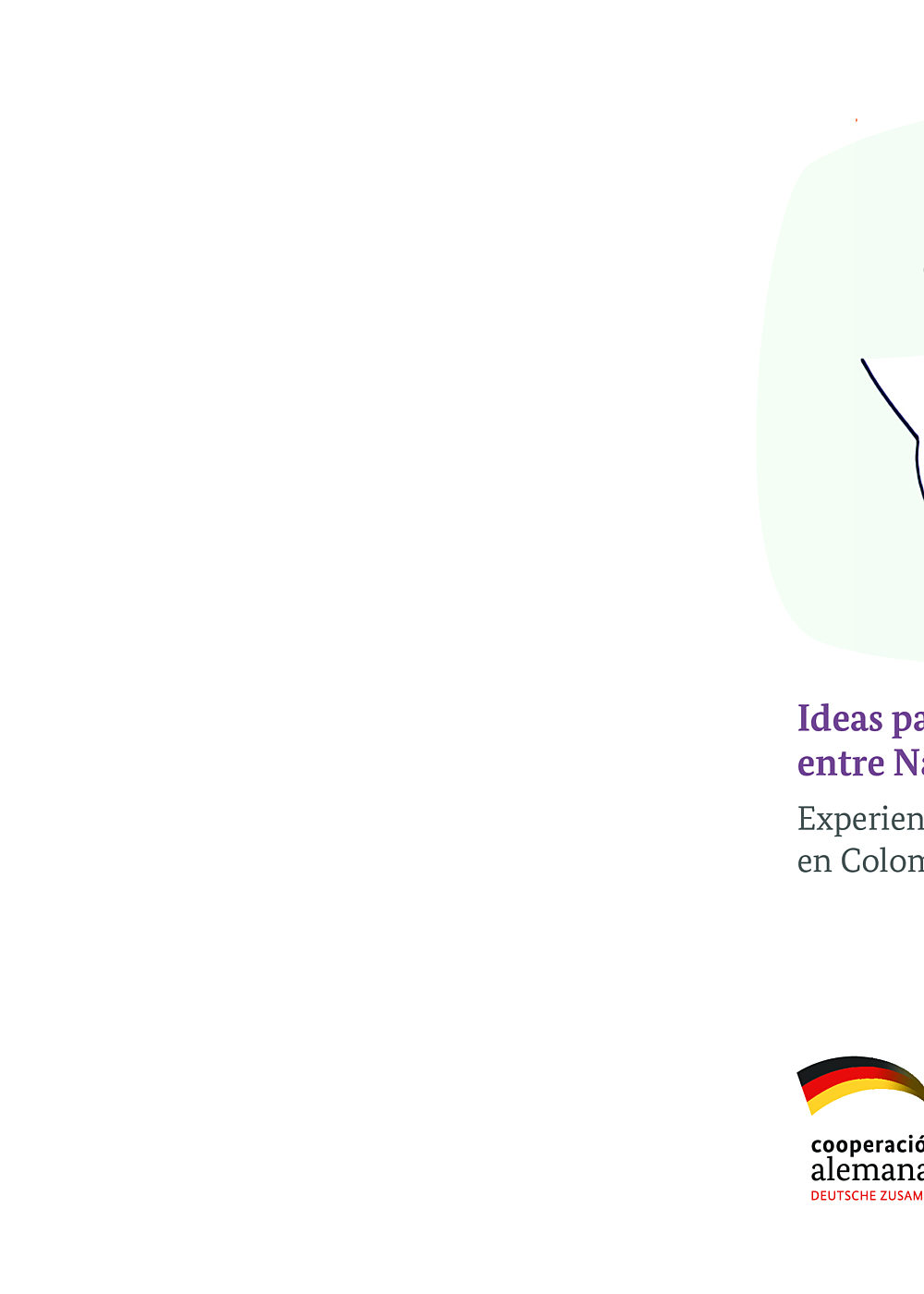
Ideas para fomentar la articulación entre Nación, departamento y municipioExperiencias de tres procesos de cambio en la construcción de paz en Colombia
Este texto se ha elaborado con base en las observaciones y los aprendizajes de personas y organizaciones involucradas en procesos de articulación internivel que fueron acompañados por asesores del programa Cercapaz. El acompañamiento tenía como propósito poner en práctica decisiones políticas y con esto el mejoramiento de la articulación Nación-región en los casos específicos. El texto elaborado se inserta en esta lógica y busca ofrecer respuestas desde la percepción de los actores que participaron en los procesos, sobre cuál es el valor agregado o el beneficio de una buena relación Nación-región para procesos de Construcción de Paz y cuáles son los factores que facilitan u obstaculizan la articulación, la coordinación y la complementariedad entre Nación-Región. Finalmente, se indaga acerca de cómo se puede fomentar esta articulación. Se espera que los aprendizajes sirvan a otros actores que trabajan en la Construcción de Paz en procesos donde la articulación entre niveles es un tema estratégico.
- Year 2014
- Author(s) Nubia Leal de Castro, Uta Giebel
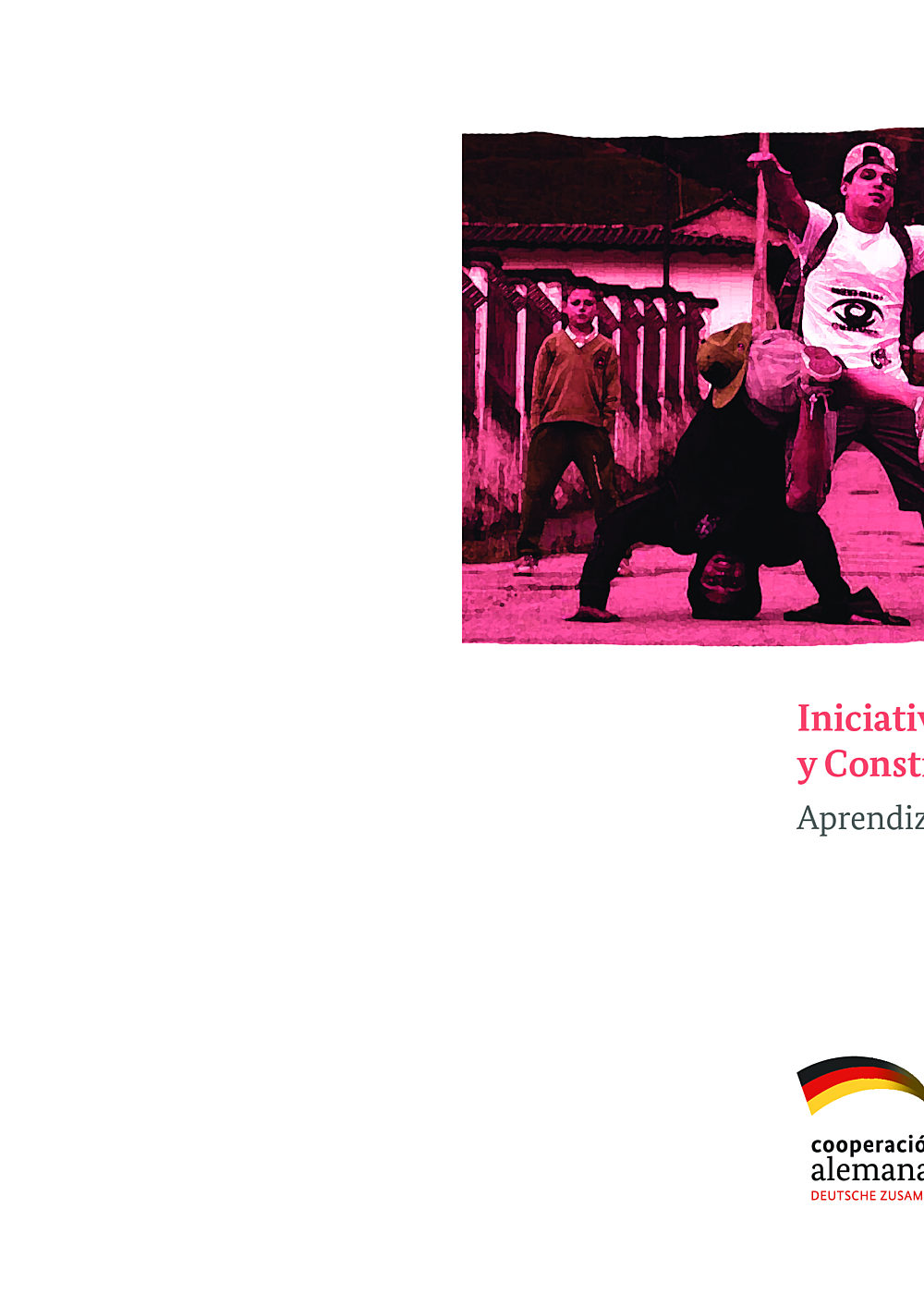
Iniciativas con jóvenes en prevención de violencias y Construcción de PazAprendizajes y recomendaciones para la práctica y la decisión política
La prevención de la violencia y la Construcción de Paz con jóvenes es un tema de alta relevancia en Colombia, por su enorme potencial demográfico, su creatividad y dinamismo y las múltiples iniciativas para la convivencia y la Construcción de Paz que lideran, y por la dimensión que han tomado los fenómenos de violencia y delincuencia y la manera sobreproporcional como estas afectan a dicha población. A sabiendas de la creciente atención que el tema tiene en las políticas y algunos sectores de la sociedad, la Construcción de Paz y la prevención de la violencia con la participación de jóvenes es un asunto que requiere no solo de mayores recursos e inversiones, sino también de mayor visibilidad, apoyo, reconocimiento y respaldo a través del conocimiento, la formación, la cultura, los medios de comunicación y la inclusión de jóvenes en las dinámicas educativas, sociales y económicas.
- Year 2014
- Author(s) Joerg Le Blanc
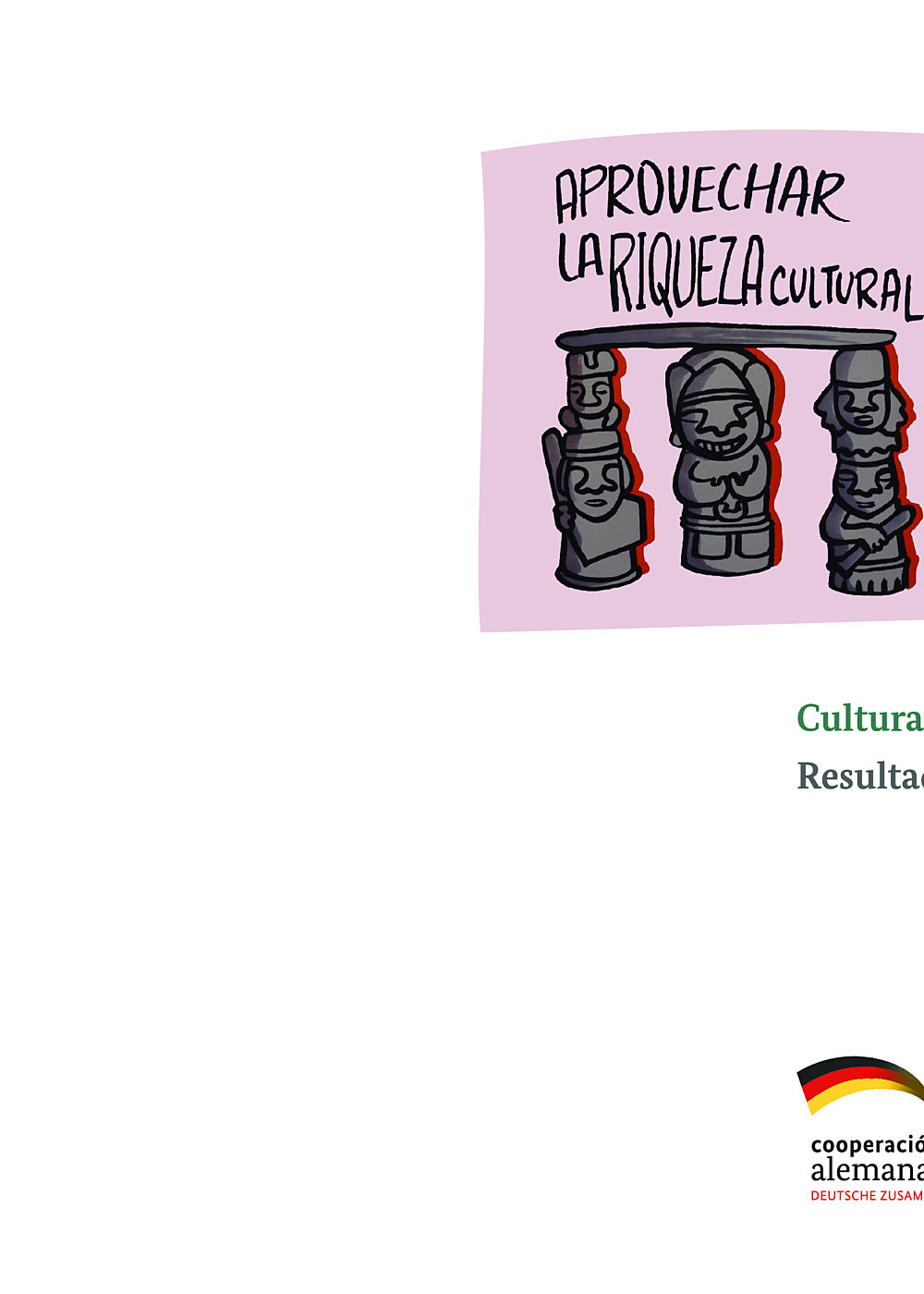
Culturas de Paz como enfoque en la Cooperación AlemanaResultados y aprendizajes
Este documento sistematiza el trabajo realizado por Cercapaz con el enfoque de Culturas de Paz partiendo de sus bases conceptuales y desarrollos metodológicos, los principales resultados así como los aprendizajes y retos. Estos se convierten en recomendaciones para futuros programas de la Cooperación Alemana, para programas similares de otras agencias de cooperación, para entidades públicas y privadas así como para organizaciones sociales y comunitarias que quieran trabajar bajo este enfoque.
- Year 2014
- Author(s) Carlos H. Fernández
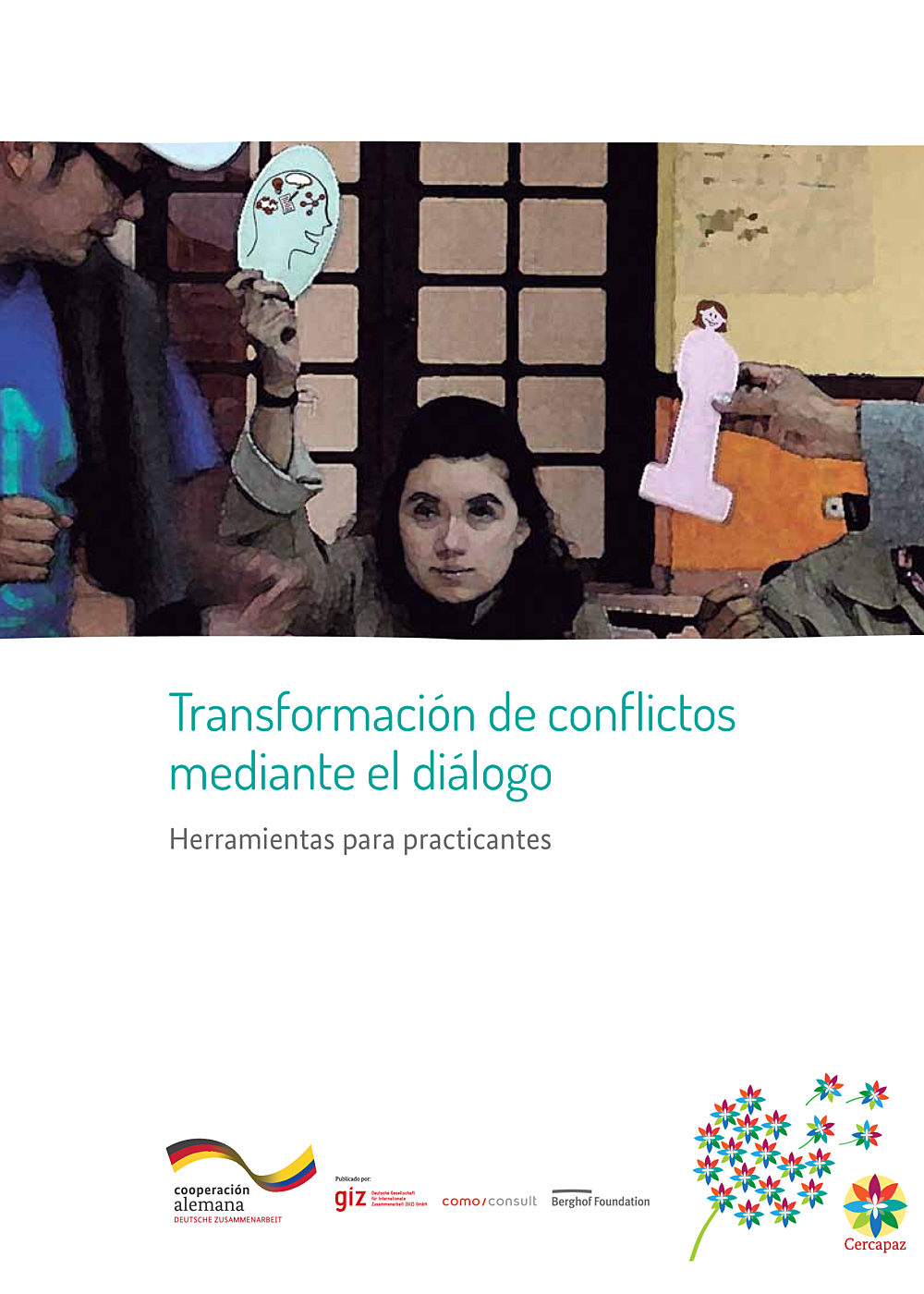
Transformación de conflictos mediante el diálogo
Como una de las publicaciones del programa CERCAPAZ, esta caja de herramientas se dirige a personas que practican el diálogo en la Construcción de Paz y la transformación de conflictos. Brinda un conjunto de conceptos y herramientas cuya prueba y selección se hicieron en un proceso de formación y aplicación con practicantes de diálogo en Colombia. Se espera que aporte a otros procesos en contextos de conflictos que promuevan diálogos como medio para la Construcción de Paz, y en la capacitación de personas para el desempeño en diálogos en diversos temas con distintos actores: Estado, Sociedad Civil, sector privado y otros.
- Year 2014
- Author(s) Jaime Andrés Gómez, María Paula Prada, Barbara Unger
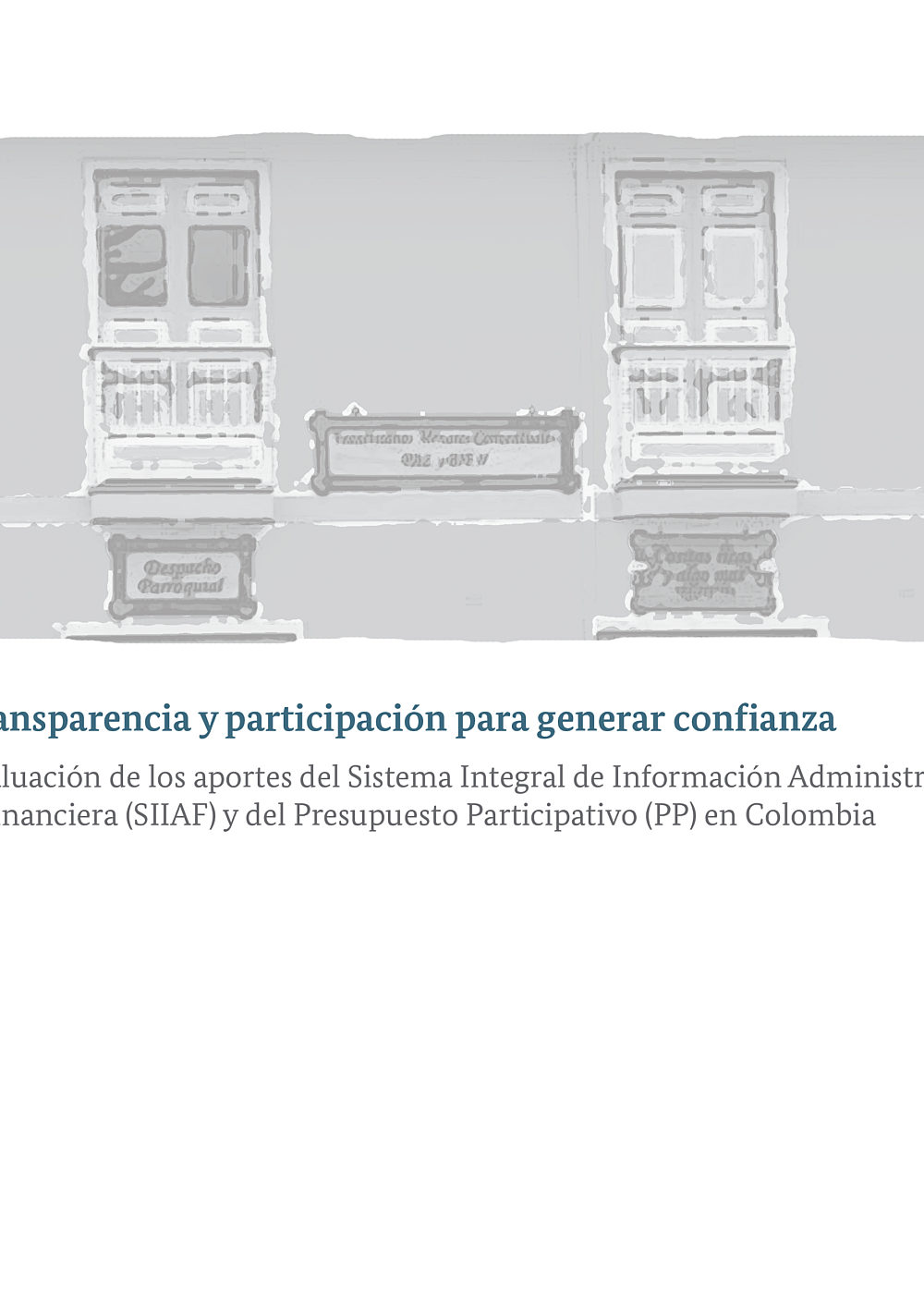
Transparencia y participación para generar confianzaEvaluación de los aportes del Sistema Integral de Información Administrativa y Financiera (SIIAF) y del Presupuesto Participativo (PP) en Colombia
Esta evaluación se centra exclusivamente en el SIIAF y el PP. Lo que se busca es comprobar si la hipótesis de trabajo (mencionada antes) resultó cierta en el caso de las dos herramientas. En concreto, el objetivo de la evaluación consiste en: Evaluar la sostenibilidad de las herramientas SIIAF y PP, así como su impacto en cuanto a su aporte al aumento de la eficiencia y transparencia administrativa y a la construcción de relaciones de confianza entre el Estado y la Sociedad Civil. Junto a eso y tomando en cuenta los criterios de evaluación del Comité de Asistencia al Desarrollo de la Organización para la Cooperación y el Desarrollo Económico (DAC/OCDE), la evaluación examinará la relevancia y la eficacia de la intervención de la GIZ en relación con las dos herramientas. A falta de información no se evaluará la eficiencia de la intervención.
- Year 2014
- Author(s) Silke Pfeiffer
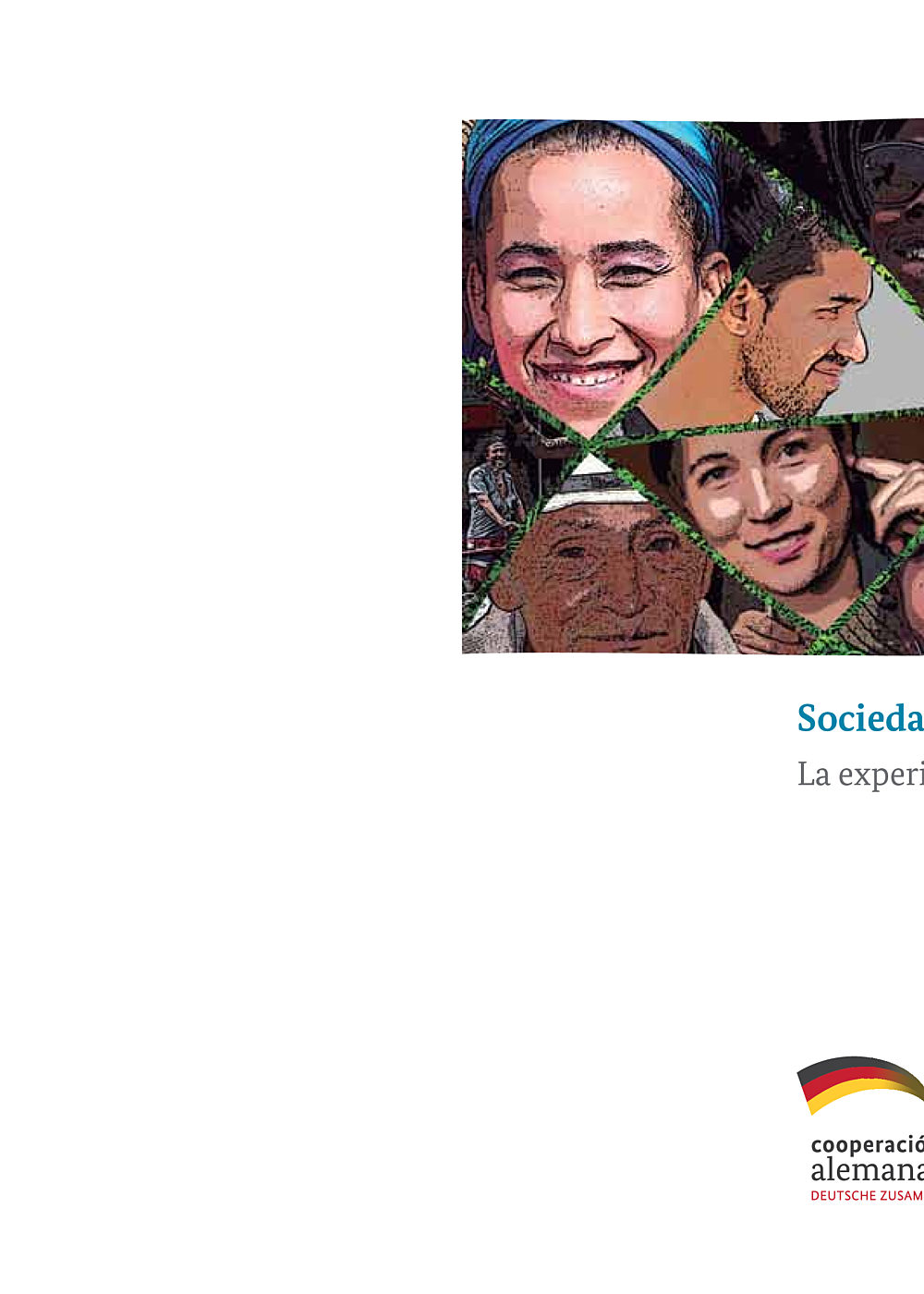
Sociedad Civil y Estado, en confianza: camino para construir pazLa experiencia Cercapaz
La ausencia de confianza entre el Estado y la Sociedad Civil fue el problema central que inspiró el diseño y la apuesta metodológica del programa Cercapaz, Cooperación entre Estado y Sociedad Civil para el Desarrollo de la Paz. Un programa de la Agencia Alemana para la Cooperación Internacional, GIZ, ejecutado por encargo del Ministerio Federal Alemán de Cooperación Económica y Desarrollo, BMZ, en conjunto con una diversidad de contrapartes colombianas, que tuvo como objetivo central durante tres fases de trabajo (2007-2014), en todos los temas y procesos asesorados, fomentar la confianza entre la Sociedad Civil y la institucionalidad pública. Después de aproximadamente ocho años de trabajo, el Programa quiere reconocer de manera cualitativa cuáles fueron los resultados de su implementación.
- Year 2014
- Author(s) Myriam Sánchez, María Paula Prada, Lorena Cantillo
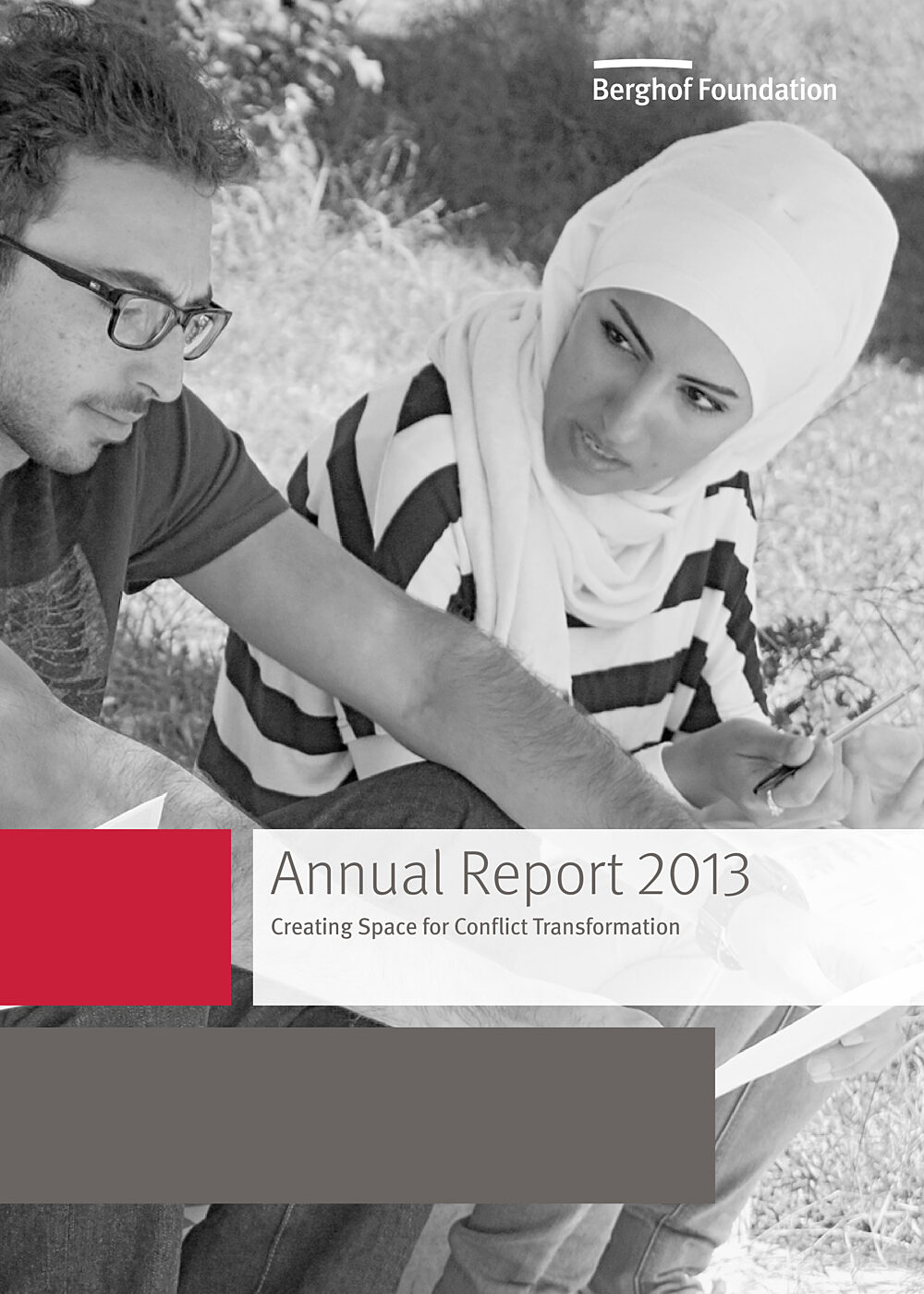
Berghof Foundation Annual Report 2013
- Year 2014
- Author(s) Berghof Foundation
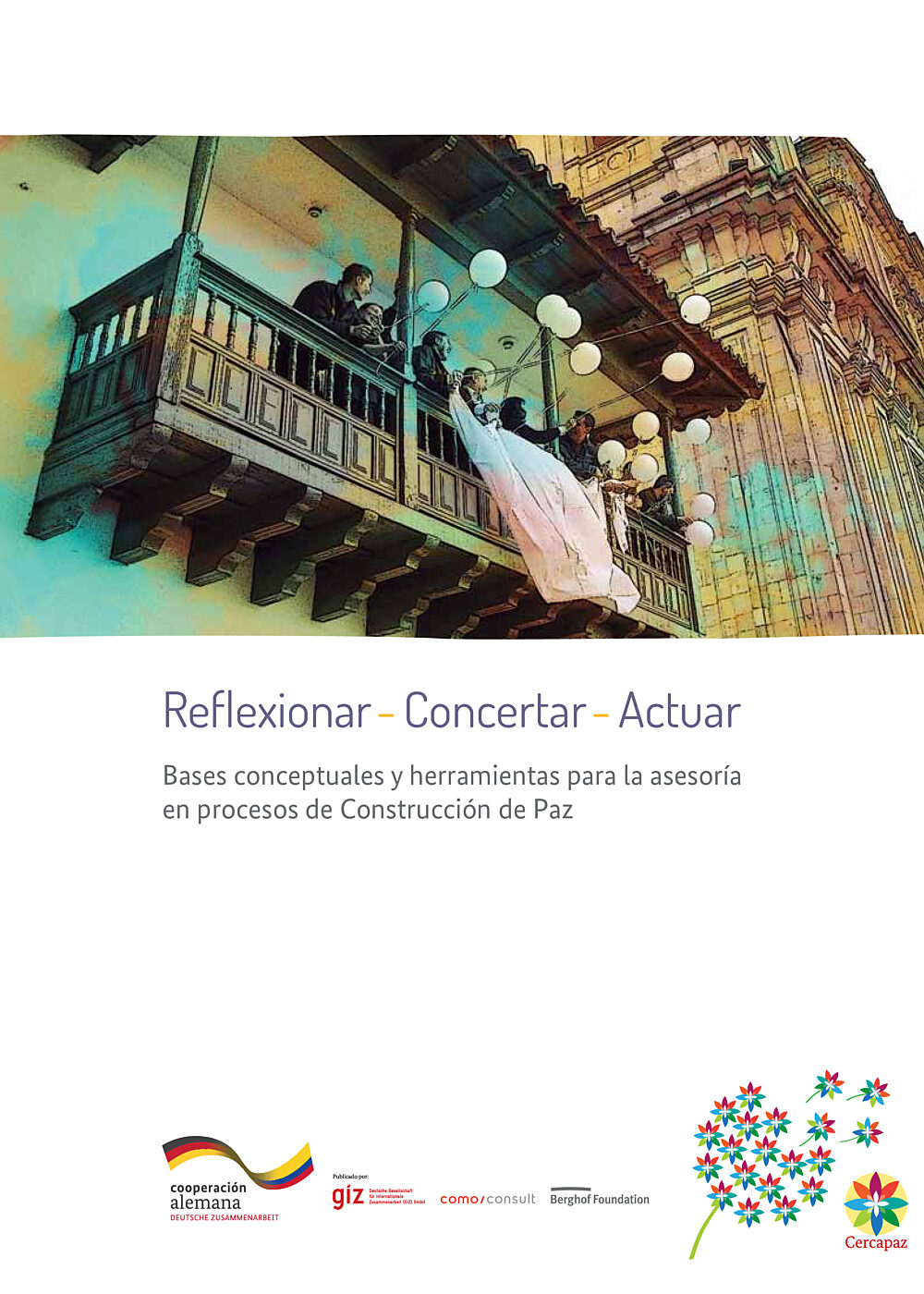
Reflexionar - Concertar - ActuarBases conceptuales y herramientas para la asesoría en procesos de Construcción de Paz
Esta caja de herramientas ha sido desarrollada pensando en el trabajo de organizaciones, instituciones y personas que acompañan y asesoran procesos de cambio en contextos conflictivos, que tienen como finalidad contribuir a la Construcción de Paz.
- Year 2014
- Author(s) Johanna Willems, Uta Giebel, Barbara Unger, Jaime Andrés Gómez
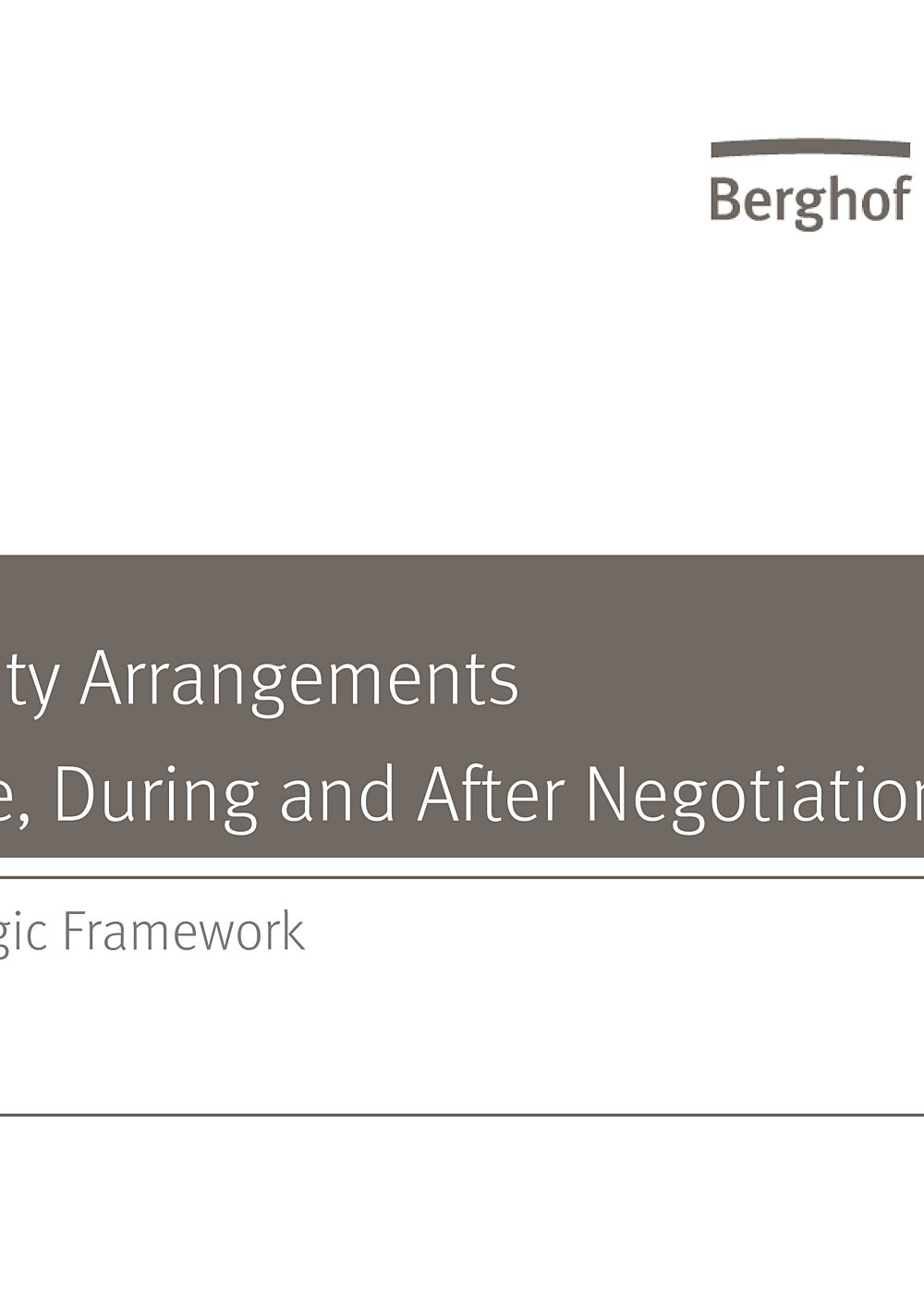
Security Arrangements Before, During and After NegotiationsA Strategic Framework
- Year 2013
- Author(s) Vanessa Prinz, Luxshi Vimalarajah, Katrin Planta
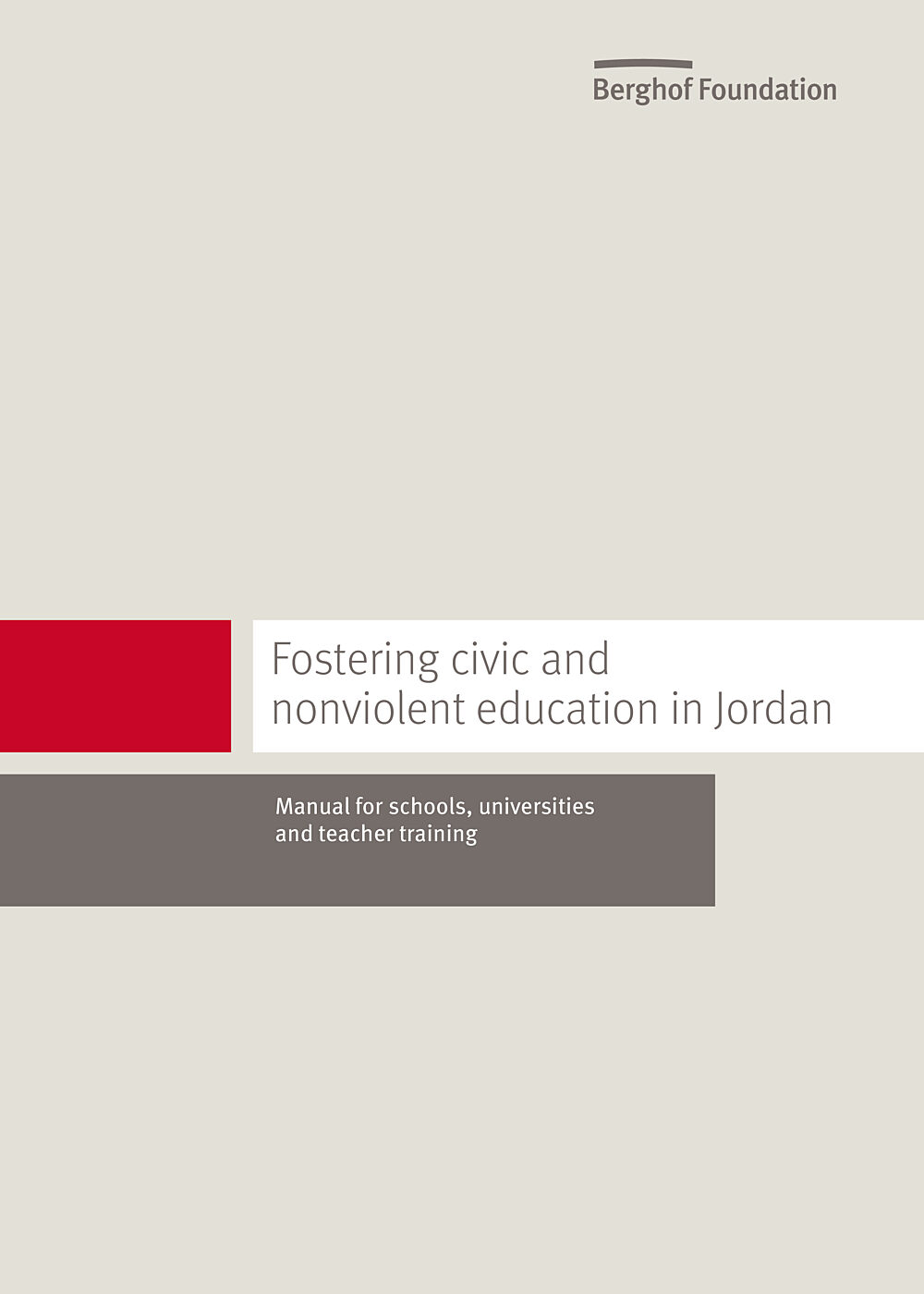
Fostering civic and nonviolent education in Jordan
This Manual combines the basic approaches for Civic Education in Jordan with international experiences and studies on Nonviolent Education, Peace Education and Violence Prevention. It is composed of three modules with different content-related aims and methodological principles. These include: Visual Storytelling, Interactive Theatre and Streetfootball for Tolerance. It is designed for the use at schools and universities, as well as for voluntary youth work, for example in refugee camps. The manual is supplemented by posters, educational movies, as well as a study on violence at universities in Jordan.
- Year 2014
- Author(s) Uli Jäger, Anne Romund, Hannah Reich